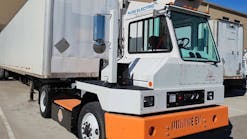The Partnership to Save Highway Communities condemned the Virginia Department of Transportation for its decision to proceed with closing rest areas along Interstate highways despite the fact that closing the rest areas will save Virginia just $9 million per year. That represents just one quarter of 1% of the commonwealth's $3.7 billion transportation budget.
Virginia has begun closing 10 of its Interstate rest areas, citing budgetary constraints and claiming that the only way to keep the facilities open is to commercialize them. This requires Congress to change the long-standing law prohibiting rest areas from offering commercial services.
The 1960-era law was enacted when the Interstate system was new to encourage commercial development along the Interstate and revitalize communities. Congress recognized that businesses at the exits would find it difficult to compete with government-run businesses at rest areas along the Interstate right-of-way. As a result of this foresight, some 60,000 businesses thrive along the exits of the Interstate Highway System, offering employment for more than 2 million Americans.
Virginia officials claim that commercializing rest areas is the only way to save them. However, commercialization will have a devastating impact on the more than 2,300 businesses that operate at the Interstate exits in Virginia. These businesses employ more than 65,000 people and contribute more than $100 million in local taxes.
The Virginia Commonwealth Transportation Board attempted to revive the rest areas during its June budget discussion, according to Lt Governor Bill Bolling. The proposal failed, however, after VDOT Secretary Pierce Homer cast the deciding vote to close the rest areas. Long before Virginia's budget woes, Homer advocated commercializing rest areas as a way to generate revenue for the state.
The Partnership to Save Highway Communities believes that the $9 million in savings to VDOT is too little to jeopardize the safety of Interstate travelers or to justify crippling the thousands of private businesses that operate off of the exit ramps of the Interstate highways. Furthermore, if Virginia successfully commercializes its rest areas, a large percentage of tax revenue will be transferred from small towns and counties to the state capital.
Despite months of discussion regarding the rest area closures, last week Virginia attempted a last-minute amendment to an appropriations bill that would have granted the state an exemption to the federal commercialization ban.








